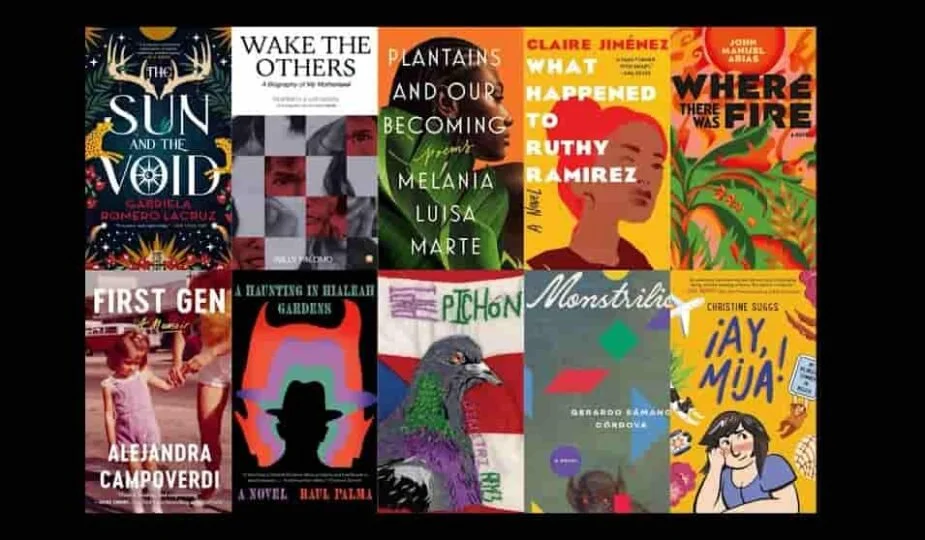Half-memoir, half-biography, Wake The Others wrestles with the legacy of the Salvadoran Civil War. Blending lyric and narrative, Palomo traces his mother’s childhood, war experiences, family separation, migration, and its aftermath. Political without sacrificing craft, confessional without navel-gazing, this debut collection of poetry guides readers through the quagmire of family secrets to a place where healing is possible.
“Willy Palomo’s outstanding debut takes a scalpel to the heart of biography as a genre, cuts through to the arteries of inherited nostalgia for a motherland, and opens the capillaries of a mama, abuela, and bisabuela’s traumas. This book is a gut wrenching family narrative of the history of violence in El Salvador and a family’s journey north in hope of stability and the possibility of joy. Palomo’s poems are an important and unique addition to the growing voice of Central American writers in the United States.”
—Natalie Scenters-Zapico, author of The Verging Cities and Lima :: Limón
“ ‘[E]ach wound in my flesh / becomes a mouth / so kiss so chant so swallow’ sings the piece titled ‘Said Cipactli to her son.’ Deceptively straightforward, this tercet is emblematic of the art Willy Palomo unfurls in this arresting debut, foregrounding, I would argue, a particular gender-conscious poetics—’some call it double labor / —the way our mothers raised children working // doubles & cooking dinners for mangy men piss-drunk / on cheap beer—but it was more than that.’ Indeed: the toolbox on display here, deployed in poem after poem, startled me, took my breath away.”
—Francisco Aragón, author of After Rubén and His Tongue a Swath of Sky
MonarchThePoet reviews Wake the Others
“Palomo has been in the rap and slam game for years, and his debut is nothing short of slamming. This poetry collection is a memoir and biography that is so much about strength and about motherhood in the face of adversity as much as it is about the Salvadoran Civil War and its lasting pain.”
—Latino Stories, The Best New Latinx Authors of 2023
“I read it in one sitting because it was impossible to put down… The precision of Willy’s language meets the challenge of reflecting an inimitable life. This book is for anyone who wonders what it would be like to survive a civil war and face the challenges of migration, for anyone who wants to grow compassion for their ancestors and appreciation of indigenous culture, and/or for anyone who simply loves language.”
—Nan Seymour, River Writing Collective, author of Prayers Not Meant For Heaven
“Wake the Others shook me awake as though I were mid-surgery. This biographical collection of poems takes the reader through the history of the speaker’s family, homeland, and identity, leaving them with chills and wounds. Willy Palomo does nothing to hold back gruesome details of poverty, war, and strife while interweaving visuals with the thread of unbroken strength and admiration that pervades each generation. These poems are prayers to the dirt of reality – such as in Where Papi’s Angel Speaks from an Immigrant Detention Center, the line “I use my shoes as pillows,” repeats hope throughout, not unlike a beating heart, and, in After Losing San Agustín, After Finding Izote, the speaker refers to Mamí as the izote, or yucca, plant – able to be cut “at any point and she will keep growing.” The religious juxtaposition of grit and warmth creates vivid murals inside the reader’s mind while sneaking fingers around the throat, leaving the reader with a profound understanding of how trauma and love grow thick, strong, roots. Wake the Others will leave the reader stitched up with a fuller chest and deeper appreciation for how humans have survived anything at all.”
—amanda corbin, author of addiction is a sweet, dark room
“Palomo, with poignant precision, captures the intricate fabric of women's trials in the very act of existing within society. It's safe to say that any woman can relate in some way to Willy's mother, and I hope they find solace, as I did, in the fact that Palomo pays tribute to these unseen struggles by recording them, especially with such artistry.”
—The Ogdenite
From WAKE THE OTHERS


